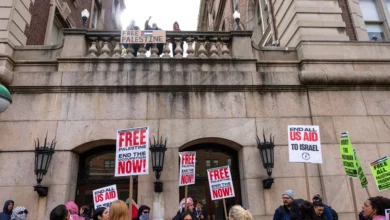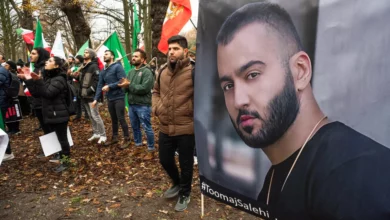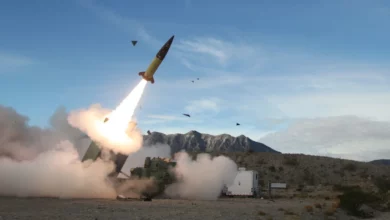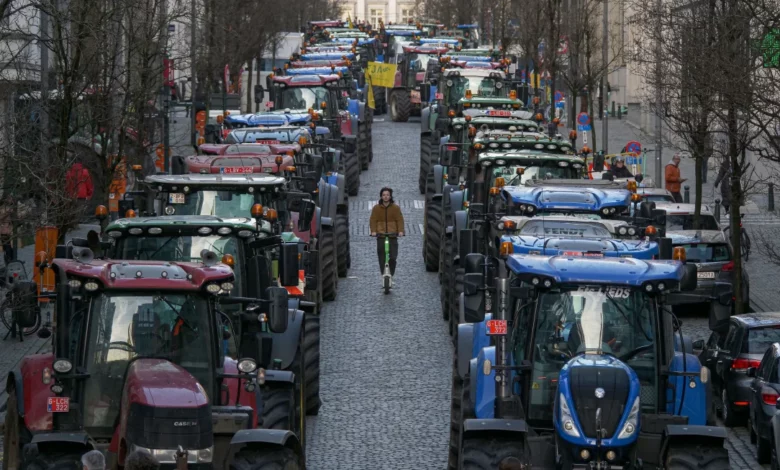
Farmers are holding protests across Europe, clogging the streets with their tractors, blocking ports and pelting the European Parliament with eggs over a long list of complaints from environmental regulation to excessive red tape.
“We are no longer making a living from our profession,” one aggrieved farmer in Paris told CNN.
While some of the most dramatic protests have been in France, similar action has been taking place in a host of countries including Italy, Spain, Romania, Poland, Greece, Germany, Portugal and the Netherlands.
Farming makes up just 1.4 percent of the European Union’s GDP, the latest figures show, but protests in Eastern Europe last year over cheap Ukrainian imports – which saw lengthy blockades at border crossings – show how farmers as a group are capable of causing major disruption.
Both national governments and the EU are now under pressure to quell the fresh demonstrations.
CNN takes a closer look at the factors involved.
What’s happening and where?
This week, the farmers’ protests struck at the heart of the European Union, when they rolled into Brussels on Thursday as leaders held a major summit on Ukraine. Once camped outside the parliament building, they lobbed eggs, blared their horns and sparked fires.
Belgian farmers targeted border crossings with the Netherlands in Zandvliet, Meer and Postel, causing delays.
In France, farmers blocked major highways leading to Paris as well as the cities of Lyon and Toulouse. Dozens of farmers set up tents and lit fires to keep themselves warm as they attempted to shut off routes into the French capital.
At least 91 people were detained on Wednesday for obstructing traffic and causing damage near the Rungis market south of Paris, a key distribution food hub, CNN affiliate BFMTV reported. But other protesters were less hostile: Some farmers handed out freshly baked pain-au-chocolats to police outside Paris.
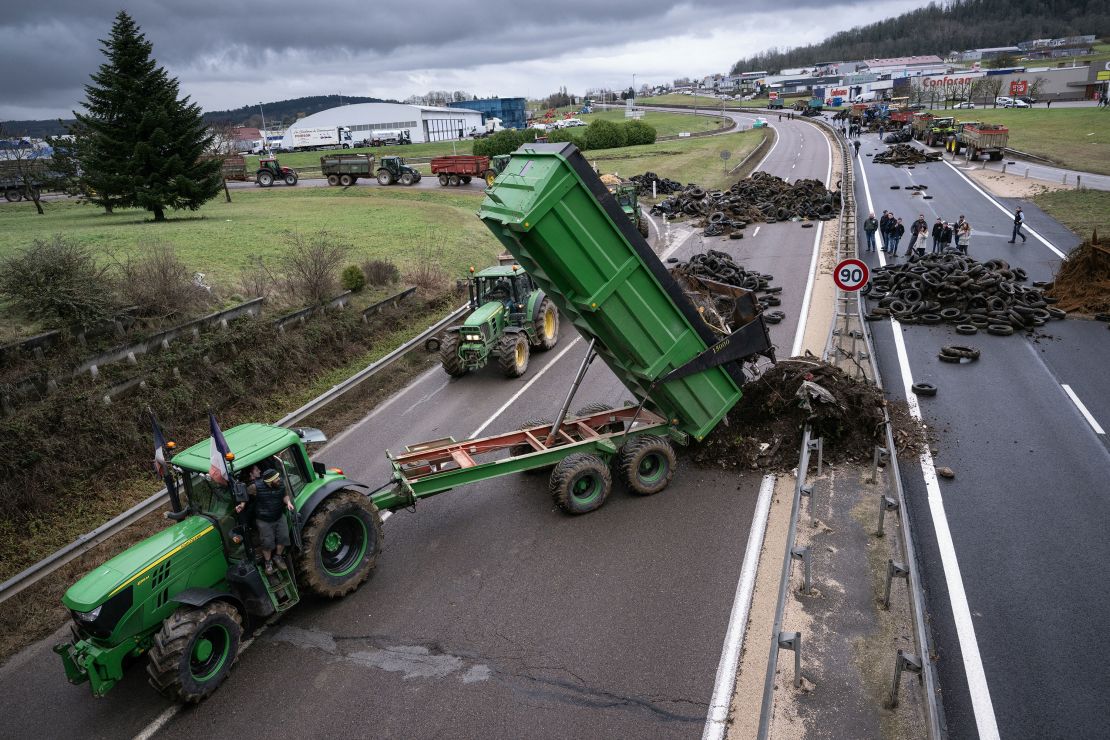
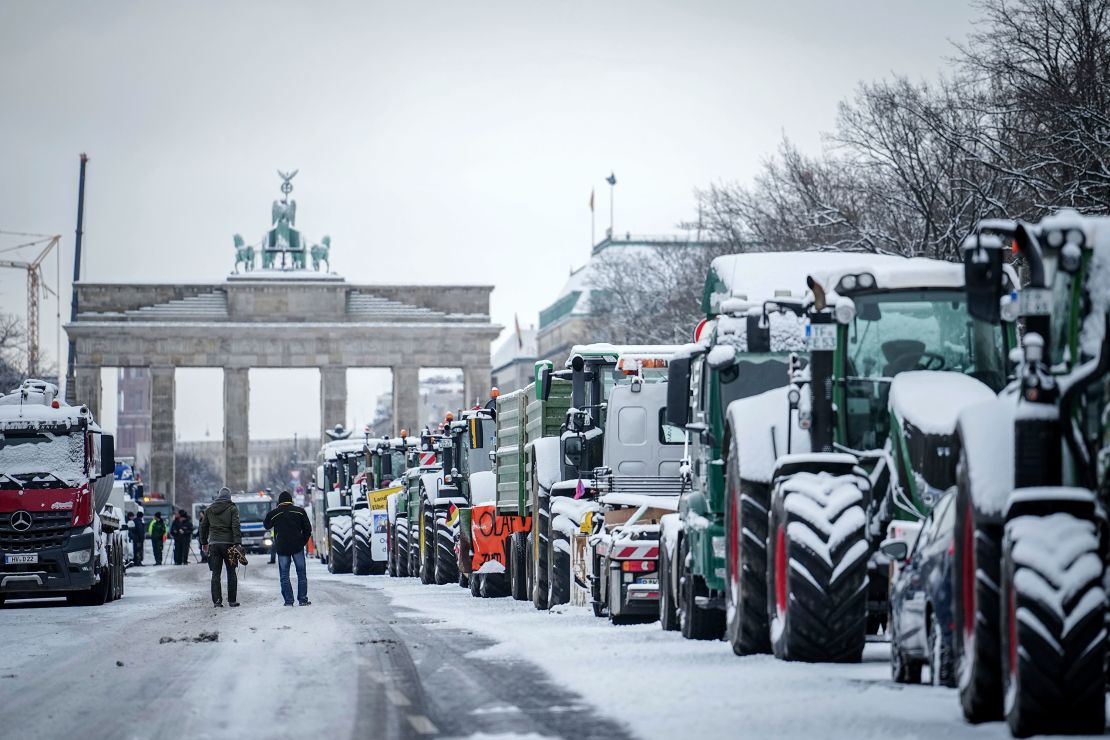
One farmer, Hugo Auge, told CNN that the current system “makes a mockery of both farmers and consumers.”
Also this week, tractors in Greece marched towards the second biggest city of Thessaloniki on Thursday, with the aim of blocking key routes inside the city.
Images from Portugal showed long lines of trucks parked near the Spanish border.
Last month, cities in Germany were brought to a standstill by thousands of rallying farmers braving freezing temperatures, piling misery on Chancellor Olaf Scholz’s governing coalition.
Major road blockages stretched across cities from east to west including Hamburg, Cologne, Bremen, Nuremberg and Munich – with up to 2,000 tractors registered for each protest.
The protests echo those of last year, when farmers in Eastern European countries, including Poland, Romania and Bulgaria, demonstrated against the impact of cheap Ukrainian grain imports, which were undercutting domestic prices and hitting the sales of local producers.
What are the grievances?
While anger over economic, regulatory and green policies unites many of the protests, there are also grievances unique to each country.
Farmers across the bloc say that the costs of energy, fertilizer and transport have risen, particularly in light of Russia’s war in Ukraine. On top of this, governments have been trying to reduce rising food prices amid inflation.
Eurostat data shows that the prices farmers get for their agricultural products peaked in 2022 but has been declining since then – dropping nearly 9% on average between the third quarter of 2022 and the same period in 2023.
In France, a government plan to phase out a tax break for farmers on diesel fuel, as part of a wider energy transition policy, has also sparked anger.
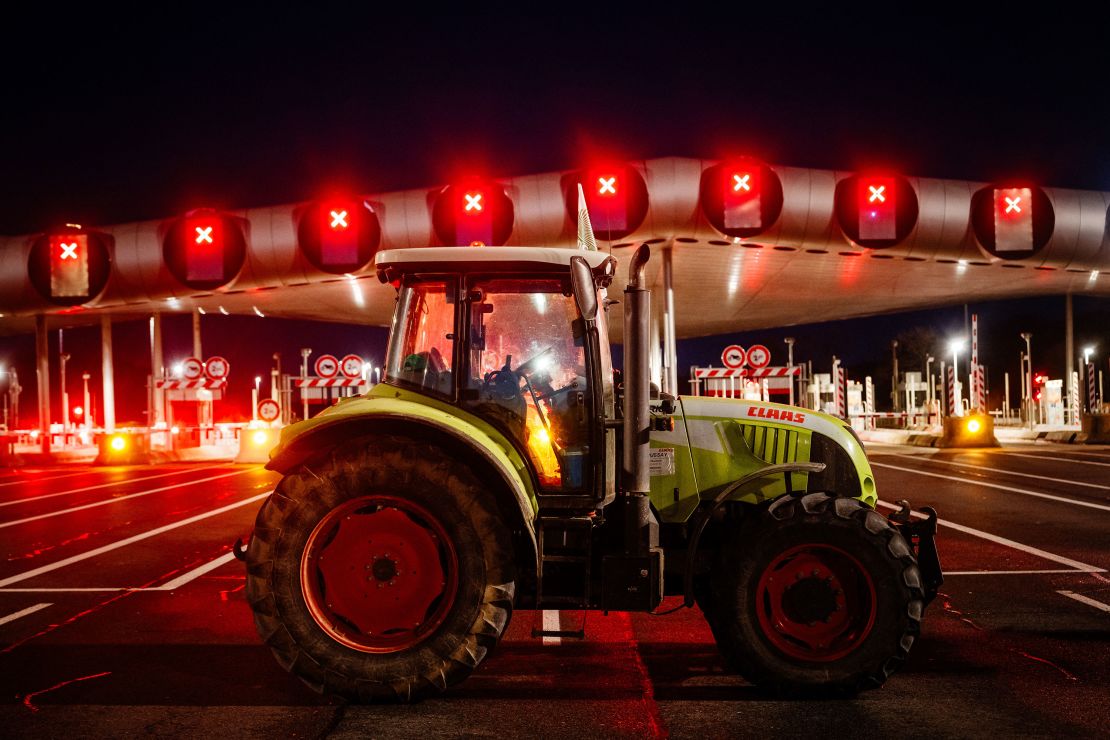
Cheap foreign imports have fanned the flames of discontent, with farmers arguing that such products are unfair competition.
Emmanuel Mathé, a French farmer from the small village of Noisy-Rudignon in Seine et Marne, told CNN: “We’re subject to enormous constraints and there are products coming in from outside Europe, that compete with us without having to apply the same rules that we’re obliged to in order to produce.”
Farmers, particularly in Eastern Europe, continue to voice grievances over the cheap agricultural imports from Ukraine, including grain, sugar and meat. The EU has waived quotas and duties on Ukrainian imports in light of Russia’s invasion of Ukraine.
Climate change is aggravating the situation in different ways. Extreme weather events such as wildfires and droughts are increasingly affecting production.
Anger has also been directed at Brussels over the EU’s environmental targets. Renaud Foucart, a senior economics lecturer at Lancaster University in England, points to the European Green Deal as a major source of tension.
The deal aims to introduce measures including a tax on carbon, pesticide bans, nitrogen emissions curbs and restrictions on water and land usage.
Foucart says farmers are trying to postpone the regulations of the Green Deal for as long as possible. “So they want to further postpone any attempt to tax carbon, any attempt to reduce pesticides.”
He points out that each European country has its own specific concerns.
“In Germany, it was really focused on diesel, so starting to tax diesel for tractors. In the Netherlands, the specific problem was about the taxation of nitrogen, which affects the industrial production of pigs and chickens. Poland is a very interesting case because it has been at the forefront of military support for Ukraine, but at the same time the Polish farmers are very angry and blockading the border to make sure Ukrainian grain doesn’t arrive in Poland.”
What’s being done to calm the protests?
At the EU level, farmers won a compromise from Brussels on January 31, when a delay was announced to rules that would have required them to set aside land to encourage soil health and biodiversity.
The European Commission offered an exemption to EU farmers from a requirement to keep a minimum share of their land fallow while allowing them to keep associated support payments.
The Commission also said it would extend the suspension of import duties on Ukrainian exports for another year to June 2025.
At a governmental level, Berlin has partially walked back on its plans to cut diesel subsidies last month. Watering down its original blueprint, the government said a car tax exemption for farming vehicles would be retained and cuts in diesel tax breaks would be staggered over three years. Many farmers however are calling for a complete reversal.
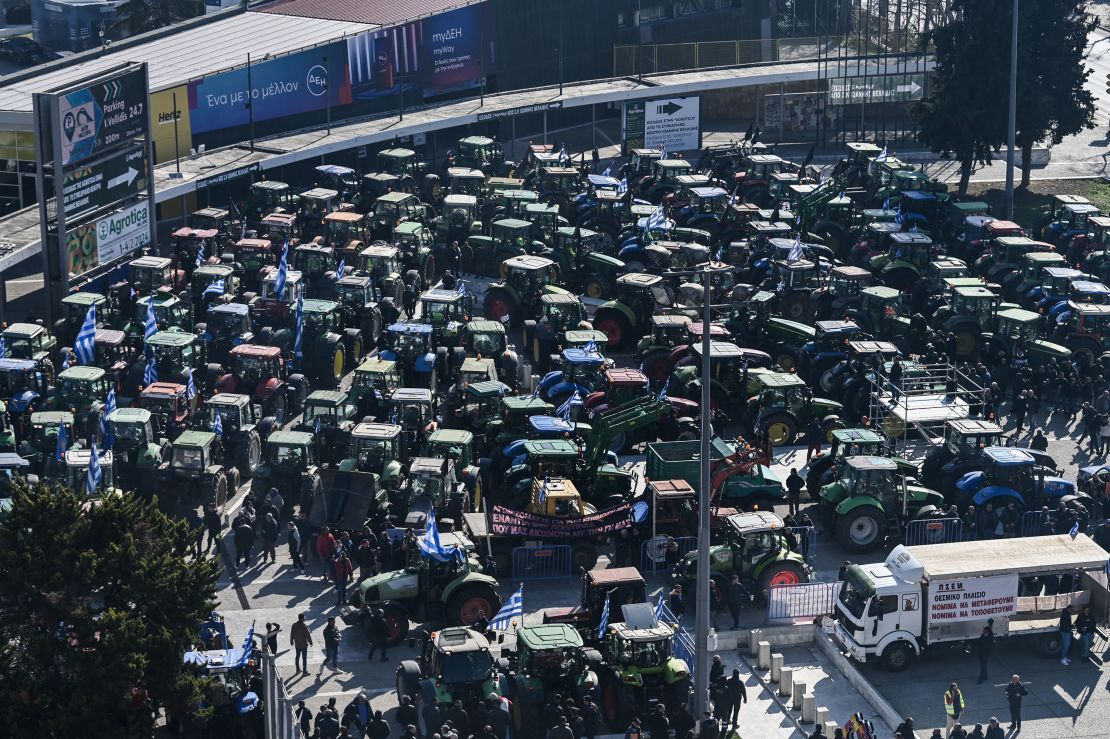
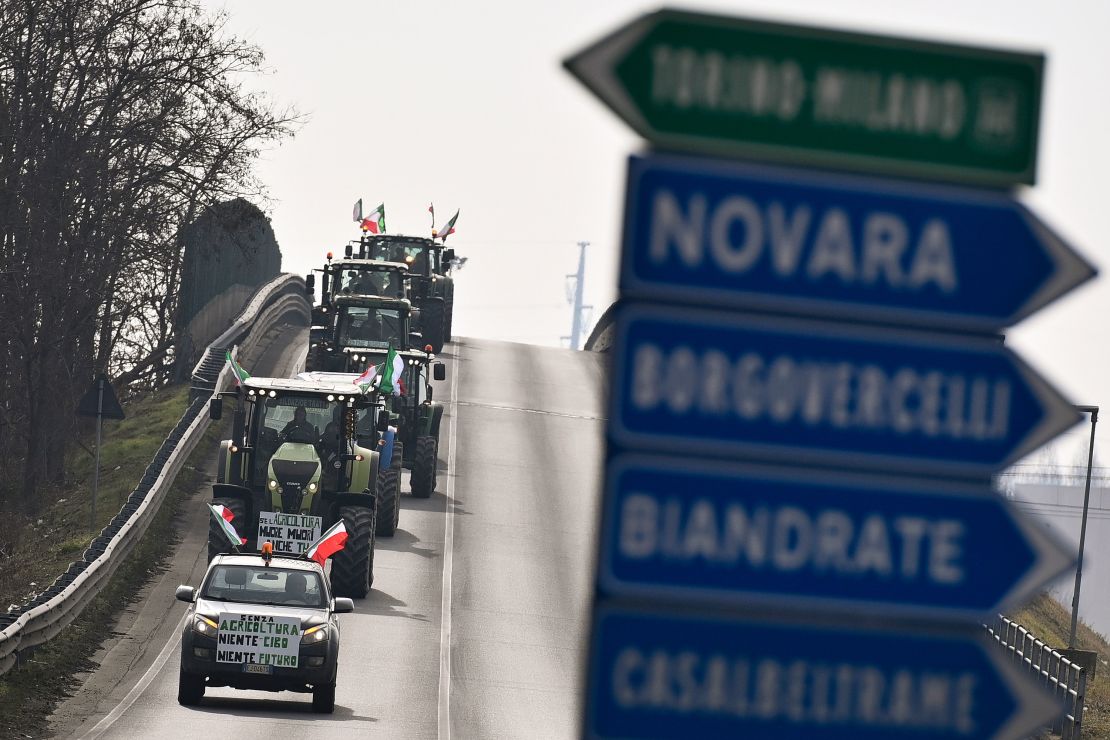
Greece announced it would extend a special tax rebate on agricultural diesel by one year, in response to calls from farmers who had their crops and livestock lost in destructive flooding.
France this week announced a series of measures for farmers in light of the protests. Newly appointed French Prime Minister Gabriel Attal pledged to safeguard “food sovereignty” and said that France would increase checks on food imports “that don’t respect our rules at a European and French level,” in an effort to protect farmers from unfair competition.
Attal also announced the allocation of 150 million euros ($162 million) to livestock farmers “in tax and social support, starting this year and continuing on a permanent basis.”
There are signs that the French measures are working – some blockades have been lifted after two major unions called for an end to the roadblocks. But elsewhere the protests continue.
What happens next?
While governments have granted concessions, some farmers say they do not go far enough and are calling for continued action.
The protests have also fueled backlash against the EU ahead of European Parliament elections in June.
European Commission President Ursula von Der Leyen has championed the EU target of reaching net zero by 2050. However, she is facing pressure from her own center-right party to water down green legislation.
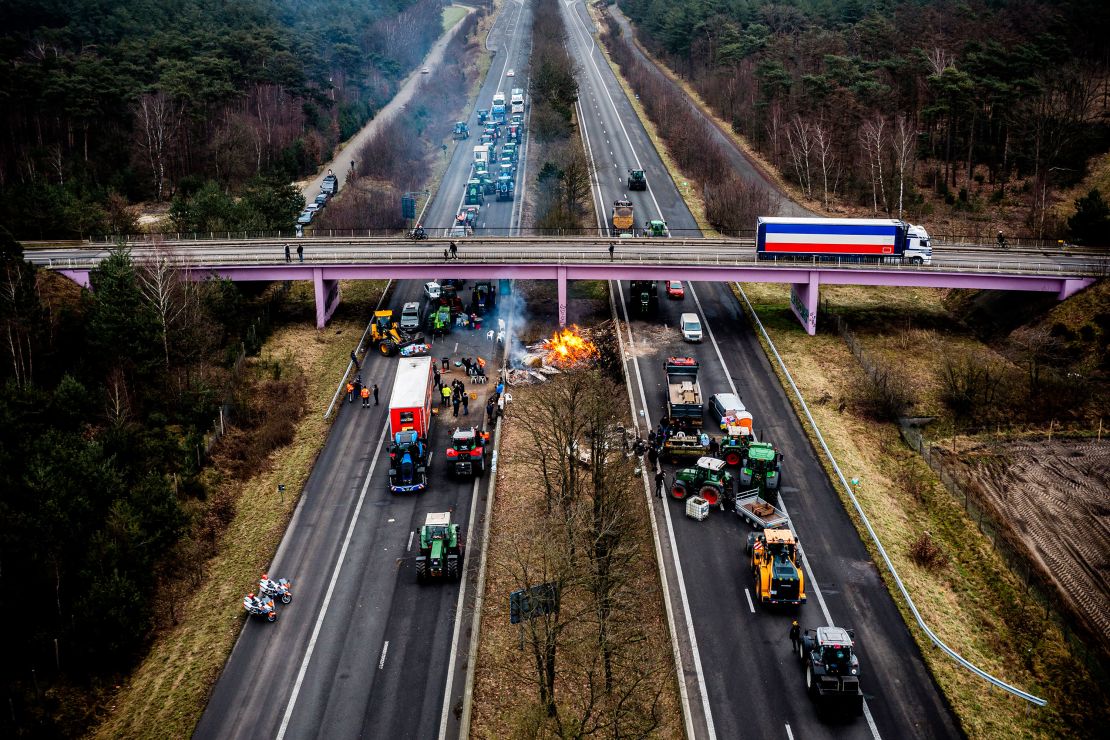
European far-right parties are hoping to make gains in the elections and may capitalize on the farmers’ grievances for their own political gain.
This has already been seen in Germany, when the far-right Alternative for Germany (AfD) involved itself in the protests and expressed solidarity with the farmers.
And there is precedent for protesting farmers to do more than just take to the streets.
In March last year, a Dutch populist party surfed a wave of rural anger to land a big election. The Farmer-Citizen Movement or BoerburgerBeweging (BBB) grew out of mass demonstrations against the government’s environmental policies. It is now the largest party in the Dutch senate.


